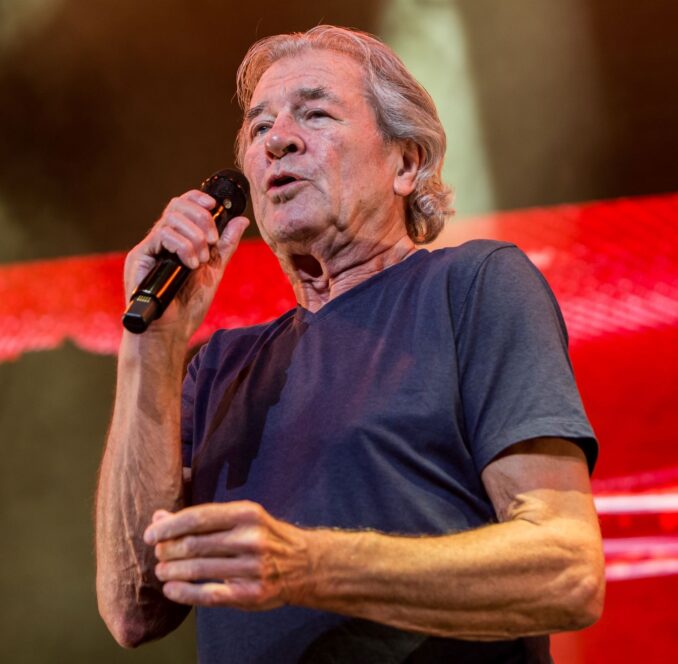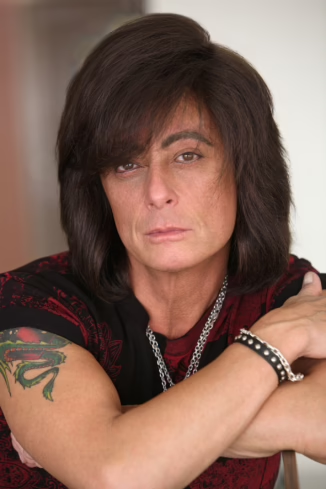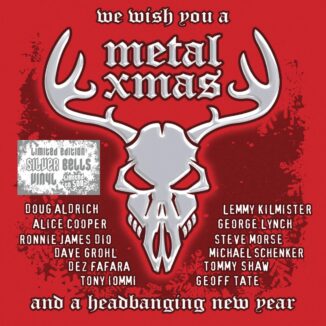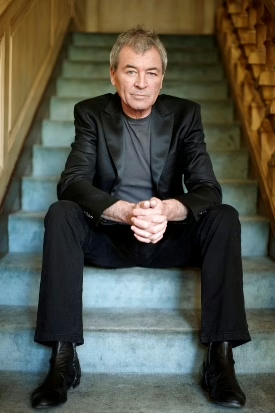
With the release of their 23rd album, =1, Deep Purple may well have delivered their best album since Perfect Strangers in 1984. Mick Burgess caught up with lead singer, Ian Gillan on the eve of their UK Tour to chat about the album and what they have planned for the tour.
In a few week’s you’ll be embarking on a five date UK arena tour. Are you looking forward to it?
Absolutely. We’re very much looking forward to it. This tour actually started in May but we are finishing in the UK so we are definitely looking forward to it for sure then we’ll be off the road for Christmas and then I’ll get a holiday but we will be working after the tour is finished.
You’ve called it the One More Time Tour. Is this really going to be your last tour or do you still intend to play select dates as and when you want?
We actually changed the name to the =1 Tour when we realised what everyone was thinking because that’s what it sounds like but we didn’t think of it like that. We meant it more in musical terms of “let’s go again”. We had a previous tour with similar problems called The Long Goodbye Tour so this is definitely not going to be our last tour.
Many of your peers have long since retired from the road. What is it that keeps you inspired to travel the world to play?
We’ve never stopped playing live. That’s how we started. I’ve been on the road since I was 16 years old and I’ve lived out of a suitcase since then apart from a period in the ’70s but since 1978 or 1979 I’ve been on the road and I can’t think of a better life. It’s very fulfilling and there’s such amazing people that we travel with, not just the band but the crew, some of who have been with us for 50 years. It’s absolutely thrilling. Every now and then we redecorate the house and get in a new player so every now and then the banjo player gets replaced. We’re onto our third one now that gives us a boost. It was fantastic when Simon McBride replaced Steve Morse and that’s no reflection on Steve. He’s so in the pocket when it comes to his style of playing. He’s brought us back more to the atmosphere and the music that we had in the ‘70s although it has a contemporary feel to it. It’s been a renaissance for the band. We don’t need inspiration, it’s just so exciting.
Of course, there’s certain songs that it would be unthinkable for you not to play but one of the great things about Deep Purple shows over the years is how you shake up your setlist from tour to tour with vintage songs you haven’t played in years, songs from recent albums and total wildcard surprises like you did last time with “Anya” from The Battle Rages On. What have you go lined up for the current tour?
Normally when we put an album out we do a couple of new songs but it’s not just a question of picking songs from the new album, they have to be compatible with the show. The songs have to fit. On this album we have six songs that fit in absolutely brilliantly. We still do “Anya” by the way as that went down so well. Normally we have to introduce new songs like a little kid to their older brothers or sisters just to gently introduce them but we were so encouraged by the fans to do just more and more of the new songs. It is a question of compatibility and the show has to have balance and texture and that sort of thing but this has been the easiest tour ever to devise a setlist that pleases both the crowd and us. We’ll do six new songs alongside the classics like “Highway Star”, “Smoke On The Water”, “Space Truckin”, “Lazy”, “Hush” and “Black Night”. We also do “Uncommon Man” which we just can’t leave out as we feel Jon Lord’s presence on the stage when we do that one. It was written about him so that stays.
There’s certain songs you have played for years such as “Smoke On The Water”, “Hush” and “Highway Star”. As a musician, how do you keep songs like that fresh for yourself to perform or does the reaction of each audience do that for you?
The audience reaction certainly helps but I have a little story to tell. I worked with Pavarotti a couple of times and we were having dinner one night and he said he was so jealous of me as he’d heard me sing “Smoke On The Water” many times and every time it was different. He said if he changed any of his arias by one scintilla from the original interpretation or changed the emotional feel or the technical delivery then he’d be crucified by his fans and critics but he said I had the freedom to do that. Also when you are doing a solo, you have to give a gesture to the original solo but it doesn’t have to be entirely the same. Being able to vary the song while keeping its essence helps to keep things fresh. We are so hyped up before we go on stage. The energy levels are massive and of course the audience, the venue and the ambience changes every night too. I don’t think there’s any time where we have just gone through a routine for the sake of it. There have been songs that we have rested for a while as they’ve sounded a little tired. If they’re good enough they come back.
A lot of those in the audience have been with you since the early days and it must be good to have that loyalty but do you enjoy seeing younger people coming to your shows too?
It’s great to see so many generations of fans come to our shows. In parts of Europe, Asia and the Far East, the average age of our audience is between 18 and 22 years old. The crowd is older in America and the UK but we still get a lot of young people there too. The energy from the younger crowd is incredible and that rubs off on us.
After 30 years in the band, guitarist Steve Morse left in 2022 to care for his ill wife. That must have been difficult to see a bandmate and a friend leave after so long?
It was difficult and these things happen in life. If someone dies, gets ill or can’t continue you don’t demolish the house. Maybe you redecorate or renovate and you look at in a positive way and not dwell on the negatives but the personal side of things are separate. You have to look on the positive side. We have a strong team that works really well and we don’t have to look very far for inspiration. Of course on a personal level it was terrible what happened to Steve.
Simon McBride replaced Steve Morse as guitarist a couple of years ago. Where did you first come across Simon?
I did a solo tour with him back in 2017 in eastern Europe with the Don Airey Orchestra and Simon was the banjo player. I only use that phrase because Kerrang magazine used to refer to guitar players as axemen so I thought guitarists needed bringing down a peg or two.
He has stepped into some rather large shoes and appears to have fit in perfectly. How did he cope with those lofty expectations?
He took the same approach as Steve Morse when asked that question when someone said that he had big shoes to fill when replacing Ritchie Blackmore and he said that Ritchie took his shoes with him when he left and now you’re dealing with Steve Morse and I think the same applies to Simon. You can’t compare any of them. It’s not just the skill of the musician to handle the instrument it’s the personality of that person and what comes out is a lifetime of musical influences. Simon comes from a different background. Steve came more from a southern american rock area but Simon is just incredibly articulate guitarist which was one of the great things about Ritchie. He was very articulate, his definition and expression was fantastic. Simon also has an amazing sound and he’s not a bad bloke too which is always good and he fits in great. He has a great sense of humour and holds his own with the banter in the dressing room. He has loads of ideas that we haven’t heard from that corner in a long, long time. He’s just slotted in so well. He was the last piece of the jigsaw and fitted perfectly. He’s given the band a renaissance. He’s given us our mojo back.
Did you give Simon a free rein to interpret the classic songs in his own way?
Yes we did. If you play a song that you didn’t originally record you have to show respect and you can’t just destroy a performance that everybody knows. Simon is a master of doing that. You think it’s the original record but it has his own stamp on it. You want to hear what he does with “Hush”, it’s unreal. No previous Deep Purple guitar player has looked at “Hush” the way Simon is doing it. I’m blown away. He’s revitalised the song and brought it right up to date. It’s just jaw dropping.
You have also have a new album out =1. Are you pleased with the reaction it’s received?
The reaction has been amazing. The reviews have been incredible and the fans love the album. We’re blown away and thrilled with how it’s been received. I’ve just got an email from the manager’s office congratulating us on reaching number one in the UK singles charts with “Lazy Sod”. It’s number one. That’s amazing. Coldplay are number two behind us with Stone Foundation at number three.
Congratulations. That’s quite an achievement for a band who is over 55 years into their recording career.
Thank you. I just can’t believe it. This is our first number one in the UK. Wow, that’s amazing. I’m going to have a drink.
What is the meaning behind the title of your single?
I have a notebook that I carry around and write down these useful words and phrases that might come in handy when I’m writing. I was asked recently by a journalist how many songs I’d written and I think it’s around 500 songs or so. I was watching a documentary about Dolly Parton and she said she’d written over 5000 songs and he said that made a lazy sod. I thought that was hilarious. The real meaning behind the song is that I was relaxed at home in Portugal one night and it was a bit chilly so I put a couple of logs on the fire and the next thing I know the room was full of smoke and a bird’s nest was on fire. I scribbled some words down “the world’s on fire and I can’t get my arse out of bed” so it became a double play on global warming.
How did Simon fit into the writing sessions? Was he upfront with his ideas or maybe he was a little shy at first?
I loved the writing for this album. It was fantastic. Deep Purple has always written in one way. The words and the tune, which is what I do, comes last. Deep Purple is primarily an instrumental band and all the ideas come from jams. We work from noon until six everyday with a break for a cup of tea in the middle and little ideas come forward. You’d hear everything if you were a fly on the wall. You’d hear jazz and rock and all kinds of mood stuff and every now and then something emerges whether a little riff here or chord sequence there or whatever. Gradually things emerge and then I do my gibberish, using my voice as an instrument seeing if anything fits. We usually do two, ten days sessions to write an album. It’s all fairly organic. You can write a song about anything but the best songs are written in ten minutes. Simon was very much involved in the whole process and was central to the writing of the material.
“Portable Door” has that wonderful Deep Purple shuffle and lovely drum groove from Ian Paice but what is a portable door?
I wrote a list of all the things I invented in my mind from invisible cream and my invisible dog and things like that. When I was short of cash I thought I’d rob a bank one day and wondered how I’d get in. This was all sort of stuff when I was 14 years old but I’d always wondered how handy it would be to have a portable door. I have a note book that I sleep with that I scribble down ideas like that.
You’ve always had the knack of penning a classy ballad or two and “If I Were You” is up there with the best and a great vocal from you. What is this one about?
Sometimes a song is not about anything in particular but more of a vague mood. I have friends who’ve been through divorces and break-ups of relationships where things had started so well but have crashed down as they are not compatible and then it gets nasty and lawyers get involved. It’s all very powerful and people can relate to them. You try to catch a moment like that as it’s powerful and when you get some music that supports that mood, it’s prime for development. It’s almost a muted threat where you grit your teeth and shake your finger but you can’t quite bring yourself to say it.
Talking of classy ballads, “When A Blind Man Cries” is not just one of your best songs but one of my all-time favourite songs. How on earth did that not make it onto Machine Head?
Well I don’t want to dig up old dirt or anything but Ritchie vetoed it. Probably because something other than the guitar solo was shining. Ritchie vetoed that, that’s for sure. It made it onto the reissue and it’s now a very important part of the live show.
“Now You’re Talkin’” is one of the best songs on the album. The interplay between Don and Simon is top class on this. Did that come spontaneously or did it take a while for that to come together?
We’ve brought that into the show and it’s been going down very well. I don’t have time to watch their genius at work as I’m still having brain fade and passing out trying to remember all the lyrics as there’s probably twice as many lyrics as there needs to be in that song. It’s fun to sing. It’s like Jerry Lee Lewis and Little Richard rolled into one.
You’ve worked with producer Bob Ezrin for the fourth consecutive album. What does Bob bring to the process?
There are a number of things. Some you’d expect and some which are more nebulous. Bob brings decisiveness during the arrangement phase but the obvious answer is that he brings us the best sound that we’ve ever had. For me, the most important thing that Bob understands is arrangement. For years Deep Purple were self produced or self arranged. Out of courtesy to the other guys, if someone came up with an idea for an arrangement, we’d all try it and then we’d try this and try that and we could spend a week working on it and we could end up with nothing. Bob, right from the get go, he’d stop us and tell us whether he liked it or not. He would tell us if something was meandering and it would be instantly decided whether to keep something or not. It was such a relief to have someone make that decision. If you work on a song too long, it gets tired and loses its freshness. That’s Bob’s genius being able to be so decisive and at times brutal but it works.
You have done a fair few live albums over the years but having seen the first tour you did with Simon a couple of years ago and how well he fit in I take it that you will be capturing this lineup at some point for a future live album?
I’d expect that the label and the management and everyone around them are already thinking about that. I’m not a great fan of live albums. One or two in a lifetime maybe but we have done a lot. For me, being there on the night and moving on is the essence of what we do but I do understand how important it is for the fans.
What are your plans for the coming months?
We have such momentum at the moment that I’m sure we’ll be going back into the writing room soon. My first plan though is to go on holiday to the Caribbean with my manager and we’ll do the accounts on the beach with a rum punch.
Deep Purple’s =1 UK Tour starts on 4th November at the Resorts World Arena in Birmingham and ends on 10th November at the Ovo Hydro in Glasgow. See deeppurple.com for full details.
Deep Purple’s latest album, =1, is out now on earMUSIC.




















Be the first to comment